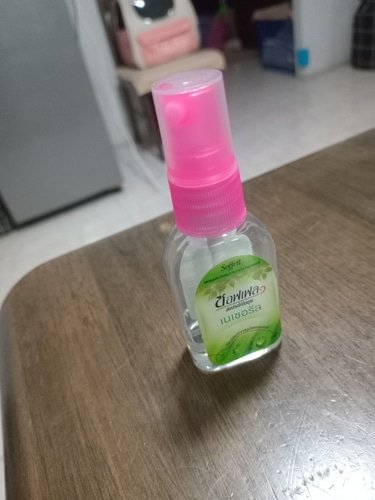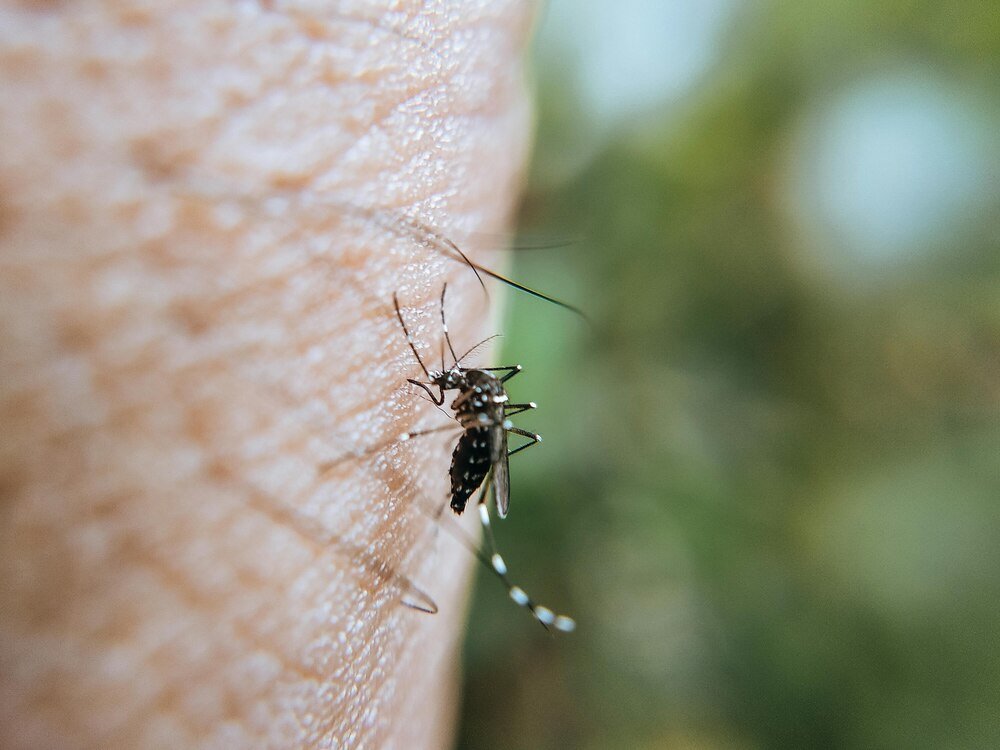I love animals. Cats and dogs have been by my side virtually all my life. I’ve seen alligators in Louisiana and have a healthy respect for our prehistoric cousins. I watched in awe, close to the King Cobra at Bangkok’s snake farm. What an animal!
Fortunately, there is only one animal I truly dislike. The mosquito! When I go to warmer places the bloodsuckers won’t leave me alone. I read that some people taste better than others. I must be a Korean buffet on legs to the mosquito.
DEET works to repel Mosquitoes – it still ranks as the most effective. DEET repellent acts by blocking the mosquito’s sensors. The mosquito is no longer able to detect the warm and moist air currents given off by humans. DEET must be maintained to remain effective. It can wash off through swimming and perspiration.
Why do some people question mosquito repellent effectiveness?
There are a number of reasons why people might think mosquito repellent doesn’t work.
Misconceptions about effectiveness. You could easily think repellents don’t work if you use a cheap repellent from the 7 ELEVEN. You may have read somewhere that natural products are the best. (not really true). And after getting bit you came to the conclusion repellents don’t work.

Improper application. If you don’t bother to read and follow the instructions you’ll end up getting bitten. You’ll end up thinking you wasted your money.
Unrealistic expectations. No repellent offers 100% protection. The odd bite might still get through the repellent’s defenses, especially after you sweat from playing volleyball on the beach. Biting densities can be exceptionally high in some areas. So even 99% protection won’t save you.
Focus on negative experiences. Is your black and white thinking clouding your perceptions? You may be focusing on the time you got bit despite using repellent. And forgetting about the times you avoided bites entirely.
Safety concerns. There does seem to be some misinformation floating around the web when it comes to DEET safety. It has been portrayed as dangerous, leading people to avoid it altogether. DEET was developed by the American Army in 1946 and has been commercially available since 1965. The rare adverse reactions are related to its misuse.
Skin irritation. Even the safest repellent can cause irritation. Unfortunately, this causes many people to abandon repellents completely.
Lack of knowledge. Some people are unaware of the different categories. Different repellents have different levels of efficacy. You may have been dazzled by natural option marketing but found it ineffective.
Improper storage. A repellent that has expired or stored incorrectly may lose its effectiveness. You should order a fresh repellent for your next camping trip.
What doesn’t work so well
It is understandable why you might think nothing works to repel mosquitos. You’ve applied the repellant and lit the candle, but you’ve still been bitten to hell and back. Let’s look in more detail at what could be going wrong.
Citronella Candles – The pleasant lie. Citronella candles let off a citrus scent that might disguise your appeal to mosquitoes. Unfortunately, the candle’s effect is negligible and only protects your immediate surroundings close to the candle. A slight breeze easily scatters the citronella oil, leaving you at the mercy of the mosquito.
Ultrasonic Devices – The silent but ineffective approach. Ultrasonic devices might be a popular option. Why not throw modern technology at the problem? These devices claim to fight off mosquitoes using high-frequency sounds inaudible to the human ear. Extensive research has failed to show these devices actually work. In fact, the mosquitoes aren’t bothered in the slightest.
Natural is more effective – Not entirely true. Natural ingredients such as lemon eucalyptus oil do offer some protection, but their effectiveness isn’t as good as EPA-repellents. The natural option may require more reapplications too. They are inferior to repellents containing DEET, picaridin, or IR3535.
One Application is all you need – Not true! Repellent effectiveness will decline with time. Swimming and sweating will wash away repellent, so think about what activities you intend on doing. Always read the label to achieve optimal protection.
A Breakdown of Repellent Options
Mosquito repellent is available in a variety of guises. Let’s look at their strengths and weaknesses. This breakdown should help you choose the best option for you.
DEET-based repellents –
- Pros – Highly effective and potential long-lasting protection. Ideal for high-risk areas or outdoor activities.
- Cons – Can irritate skin and eyes, especially higher concentrations. Not recommended for young children.
- Limitations – Not everyone likes the smell. Less effective if you sweat.
Picaridin and IR3535 Repellents –
- Pros – They offer good protection with less skin irritation compared to DEET. Suitable for most adults and older children.
- Cons – Not as effective as high-concentration DEET repellents.
- Limitations – May require frequent reapplication, especially during active pursuits.
Oil of Lemon Eucalyptus (OLE) Repellents –
- Pros – Natural alternative with some effectiveness. It has a pleasant odor.
- Cons – Not recommended for under 3s. A much shorter protection duration than DEET.
- Limitations – Requires more frequent reapplication
Natural Plant-Based Repellents (Citronella Oil, Lemon Balm) –
- Pros – Natural option, preferred by those wanting an alternative to chemicals.
- Cons – Generally less effective and shorter protection.
- Limitations – Citronella candles offer minimal protection.
Choosing the Right Repellent
Think about these factors before buying:
- Activity Level and Duration – For extended outdoor summer activities, choose a repellent with longer-lasting protection (DEET, picaridin).
- Location and mosquito risk – High risk areas will necessitate a stronger repellent (DEET).
- Sensitivity – People with sensitive skin, should choose a repellent with a lower risk of irritation (picaridin or IR3535)
- Age – Always follow age restrictions. Read the label for advice.
Understand these factors before choosing the right repellent for you. There may not be a single ‘best’ option. Balance effectiveness with safety and your own personal preference.
Table 1. Insect repellents
| repellent | effectiveness | safety | duration | irritation |
| DEET-Based | High | Generally safe for adults, not recommended for young children | Long-lasting | Can cause itchy skin |
| Picaridin | Good | Considered safe, though studied less than DEET | Several hours | Rare skin and eye irritation |
| IR3535 | Good | Has excellent safety record, but could damage your clothes | Several hours, maybe longer than picaridin | Doesn’t irritate the skin or eyes |
| Oil of Lemon Eucalyptus (OLE) | moderate | High (not for children under 3) | Shorter than DEET | Reduces itchiness |
| Natural Plant-Based | Low | High | Shorter (frequent reapplication needed) | Shouldn’t itch |
Beyond the Spray – Natural mosquito repellents
I may have failed to convince you of mosquito repellents safety and efficacy. No problem! You don’t have to fight the mosquito naked! Let’s look at some alternative methods, for those who prefer a chemical free approach.
Dress for defense – It’s time to cover up. Help create a physical barrier by wearing long sleeves, pants and socks. In warmer weather use lightweight breathable fabric. You don’t want to pass out from overheating.
Breezy Barrier – Mosquitoes aren’t the strongest fliers. They struggle with strong air currents. A portable fan nearby can really help. Otherwise, take advantage of a natural breeze. This will limit the number of mosquitoes in your vicinity.
Plant-based option – Stick to the natural. They are not amazing, but they offer some form of protection. You might smell good too. Remember to reapply frequently.
Mosquito Activity – Plan outdoor activities when the pesky creatures are less active.
Remember: These alternative methods are less effective, but if you combine them you could reduce your exposure. Anything is better than nothing. Knowing you can do something should give you greater peace of mind.
Conclusion
Mosquitoes are not going away anytime soon. Study the effectiveness of the various repellents mentioned in today’s article and make an informed choice. I hope I’ve dispelled some of the myths surrounding mosquito repellent. Consider a multi-pronged approach, a combination of things might offer the most protection. Don’t let a tiny mosquito ruin your outdoor fun!
Feel free to share your best mosquito-repelling tips and tricks. There are many ways to tackle this problem. Leave a comment below.
Articles and resources
- Prevent Mosquito Bites: https://www.cdc.gov/mosquitoes/mosquito-bites/prevent-mosquito-bites.html – This webpage provides a comprehensive overview of mosquito bite prevention, including a section specifically dedicated to insect repellents. It highlights the effectiveness of EPA-registered repellents containing DEET, picaridin, IR3535, oil of lemon eucalyptus (OLE), and para-methane-diol (PMD).
- Insect Repellent Safety: https://www.cdc.gov/niosh/topics/outdoor/mosquito-borne/repellents.html – This page focuses on the safe use of insect repellents. It offers information on choosing the right repellent, applying it correctly, and safety precautions to take, especially for children and pregnant women.
- DEET: https://wwwnc.cdc.gov/travel/yellowbook/2024/environmental-hazards-risks/mosquitoes-ticks-and-other-arthropods – This webpage specifically addresses DEET, a common ingredient in mosquito repellents. It clarifies misconceptions about DEET safety and emphasizes the importance of following label instructions when using DEET-containing repellents.


Pingback: Is camping good for kids? - novus places
Pingback: 11 Rookie camping fails (And How to avoid them) - novus places
Pingback: What is the Essential Camping Gear for Beginners? - novus places
Pingback: How do you keep safe when camping in extreme heat?
Pingback: Can you camp along the Colorado River?